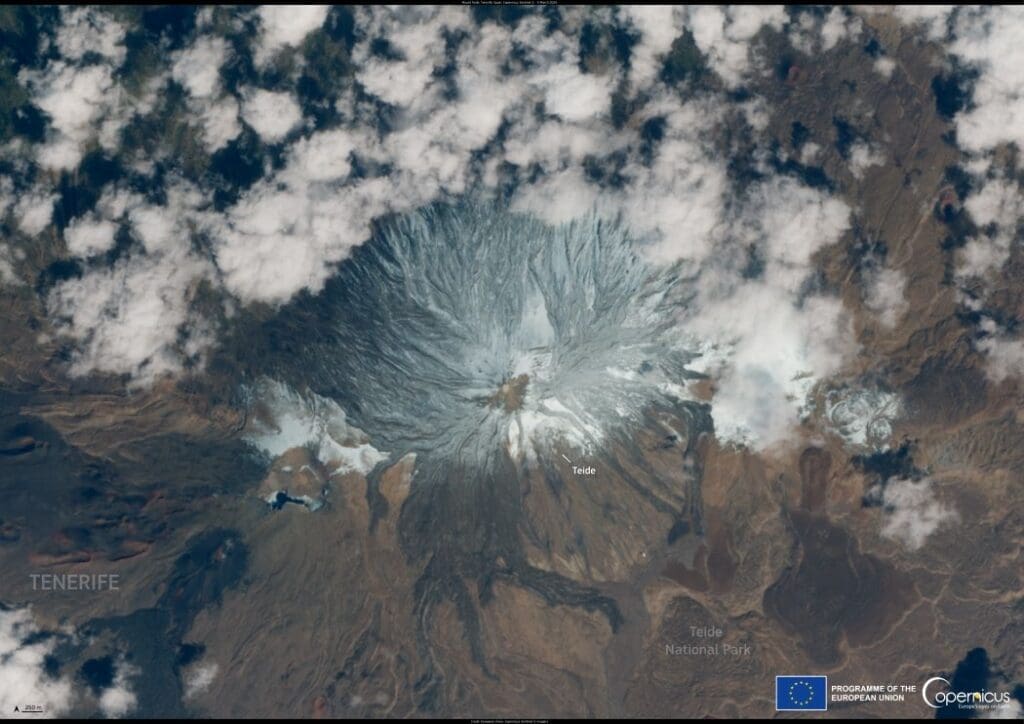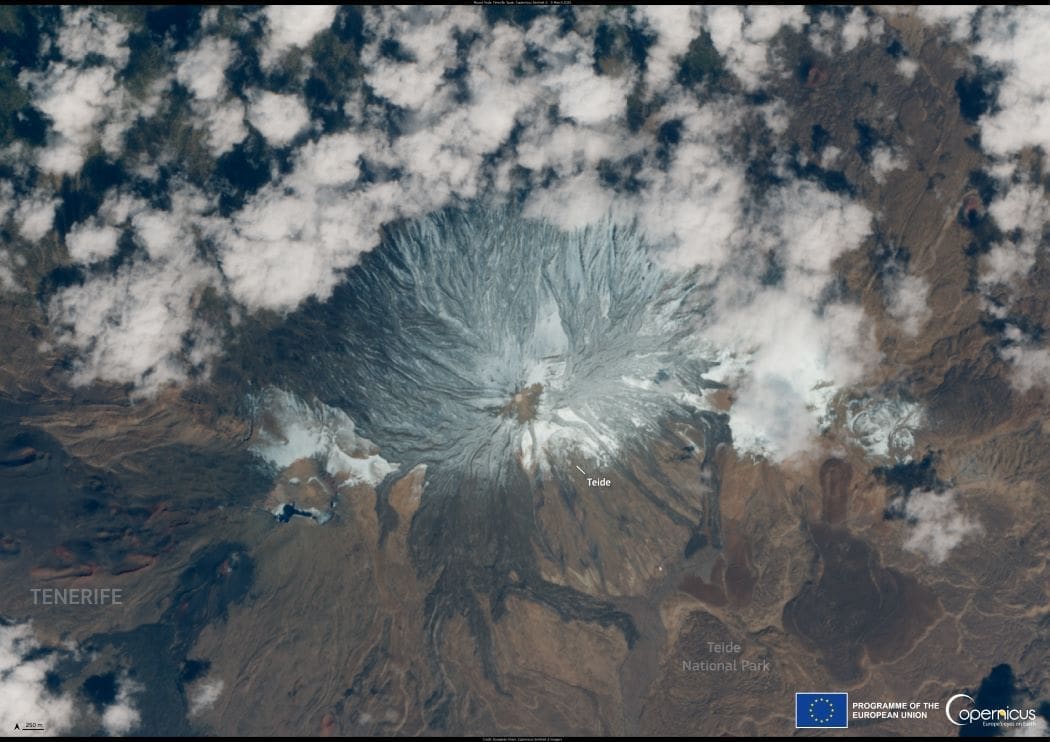This satellite image, captured by Copernicus Sentinel-2 on 5 March 2025, reveals Mount Teide, the highest peak in Spain, blanketed in fresh snow. Located on Tenerife in the Canary Islands, the volcano’s typically arid slopes have been transformed by recent winter conditions.

Snowfall began on 2 March 2025 following a storm system known as an upper-level isolated depression (DANA), which brought heavy rain and freezing temperatures to the region. Authorities closed access roads to the volcano due to ice hazards and urged caution for those traveling to higher elevations. Emergency measures were put in place to ensure public safety, as local officials advised residents to check weather conditions before venturing into the mountains.
Copernicus Sentinel-2 satellites provide open-access data to monitor snow coverage worldwide, helping communities stay informed and prepared for extreme weather events.
Featured image credit: European Union, Copernicus Sentinel-2 imagery




